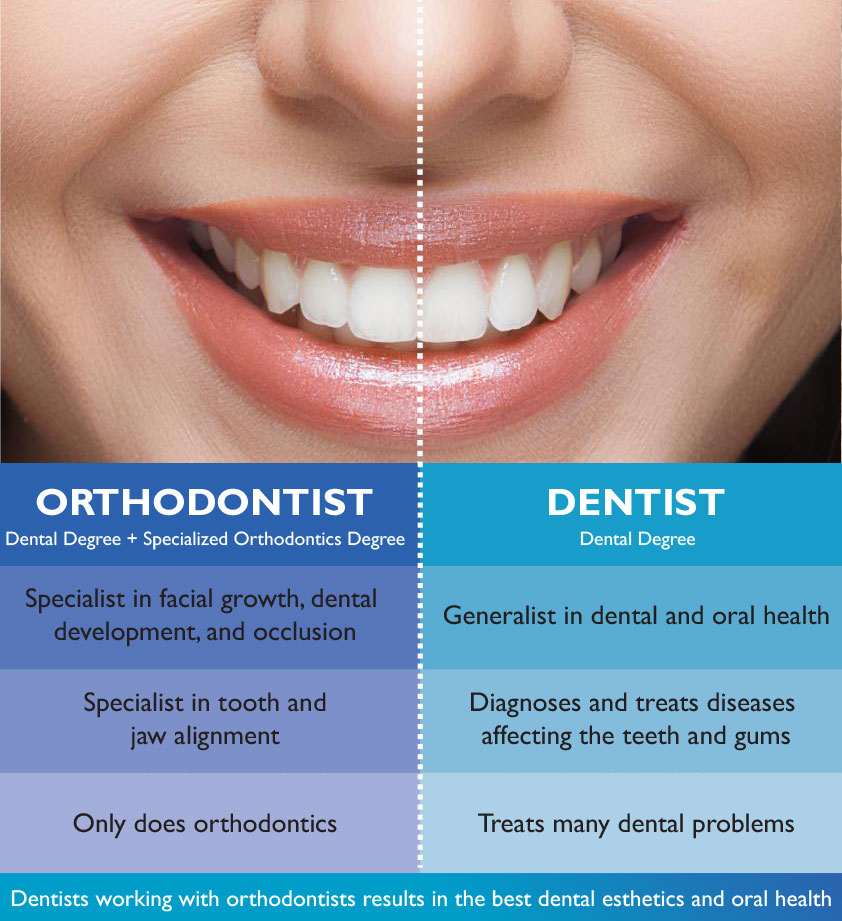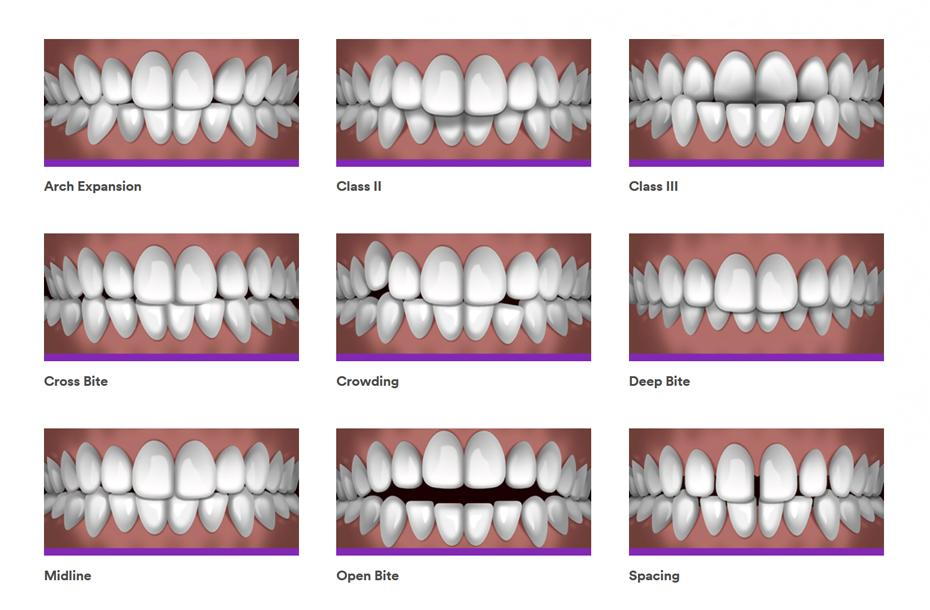The Ultimate Guide To Causey Orthodontics
Table of ContentsSome Ideas on Causey Orthodontics You Need To KnowNot known Details About Causey Orthodontics Some Known Factual Statements About Causey Orthodontics Causey Orthodontics for BeginnersThe 10-Minute Rule for Causey OrthodonticsThe Facts About Causey Orthodontics RevealedOur Causey Orthodontics Statements
What is the distinction between a dental expert and an orthodontist? All dental practitioners, including orthodontists, deal with the teeth, gums, jaw and nerves.
Orthodontists and dental experts both supply oral treatment for individuals. Orthodontists can operate in a dental workplace and supply the very same therapies as various other dentists. So you can believe of both medical professionals that treat periodontal and teeth troubles. The primary distinction is that becoming an orthodontist requires a specific specialty in treating the misalignment of the teeth and jaw.
See This Report on Causey Orthodontics
An orthodontist is a dentist that has actually undergone training to concentrate on the medical diagnosis, avoidance and therapy of irregularities in the jaw and teeth. Their training consists of fixing these existing problems. They can also identify possible troubles in teeth positioning that might establish when conditions are left untreated. Orthodontists can help individuals of any ages.
This consists of all the needed education and learning to come to be a general dental professional. According to the American Trainee Dental Association (ASDA), it means you will require to have either a Doctor of Medicine in Dentistry (DMD) or a Doctor of Oral Surgery (DDS). Simply put, orthodontists need to complete oral college and afterwards obtain an orthodontics specialty education.
Some orthodontists additionally get their masters in craniofacial biology. These programs focus on two specific locations or self-controls: Dentofacial Orthopedics: This study concentrates on leading teeth and jaw growth.
Causey Orthodontics Can Be Fun For Anyone

 These include apparatus such as braces, retainers and Invisalign. What does an orthodontist do, and what do they focus on? The overall goal of an orthodontist is to boost a person's bite. Not everyone is birthed with straight teeth, and an orthodontist will certainly make certain that individuals obtain equally spaced straight teeth.
These include apparatus such as braces, retainers and Invisalign. What does an orthodontist do, and what do they focus on? The overall goal of an orthodontist is to boost a person's bite. Not everyone is birthed with straight teeth, and an orthodontist will certainly make certain that individuals obtain equally spaced straight teeth.
The Greatest Guide To Causey Orthodontics
The American Organization of Orthodontists suggests your first check up by age 7. You'll need to see your orthodontist if you have an imbalance in your teeth, additionally known as malocclusion. Also, if you notice uneven bite patterns, a slightly misshapen jaw, or when your teeth are overcrowded, you will likely need orthodontic treatment.
In addition, we offer flexible therapy schedules, versatile repayment choices and a fun, pleasurable experience.
An orthodontist is a dental professional trained to diagnose, protect against, and treat teeth and jaw abnormalities. They remedy existing problems and are educated to determine troubles that may establish in the future. Orthodontists function with people of any ages, from children to grownups. Individuals usually associate an excellent smile with health.
Everything about Causey Orthodontics
Malocclusion, or misaligned teeth, can result in dental issues, consisting of dental caries, periodontal illness, and hard or excruciating eating. Yet not everyone is born with straight teeth. If you have a bad bite or large areas between your teeth, you may wish to consult a dentist specializing in orthodontic care.
(Photo Credit Score: DigitalVision/Getty Images) Orthodontists use repaired and removable oral tools, like dental braces, retainers, and bands, to alter the position of teeth in your mouth. Orthodontic therapy is for dental problems, including: Crooked teethBite problems, like an overbite or an underbiteCrowded teeth or teeth that are also far apartJaw misalignmentThe goal of orthodontic therapy is to improve your bite.
Some Known Details About Causey Orthodontics

All orthodontists are dental experts, however not all dental practitioners are orthodontists. Orthodontic residency programs provide intensive, concentrated guideline for oral professionals. They focus on two areas: Just how to properly and securely relocate teeth Exactly how to properly guide development in the teeth, jaw, and faceOnce an orthodontist has actually completed training, they have the option to end up being board accredited.
Malocclusion leads to tooth overcrowding, a misshapen jaw, or uneven bite patterns. Malocclusion is typically treated with: Your orthodontist affixes steel, ceramic, or plastic square bonds to your teeth.
Not known Factual Statements About Causey Orthodontics
If you have only minor malocclusion, you might be able to utilize clear dental braces, called aligners, as opposed to standard dental braces. Some individuals need a headwear to aid relocate teeth right into line with stress from outside the mouth. After dental braces or aligners, you'll require to use a retainer. A retainer is a custom-made tool that maintains your teeth in position.